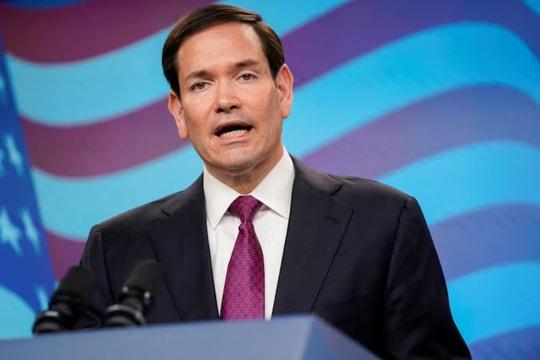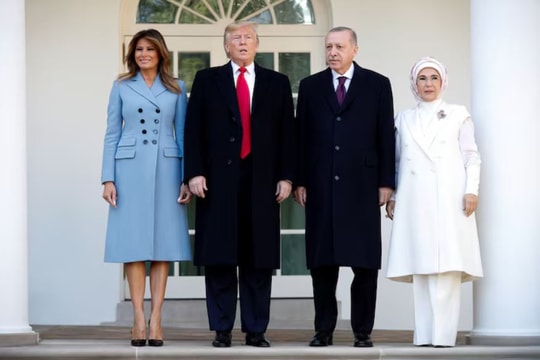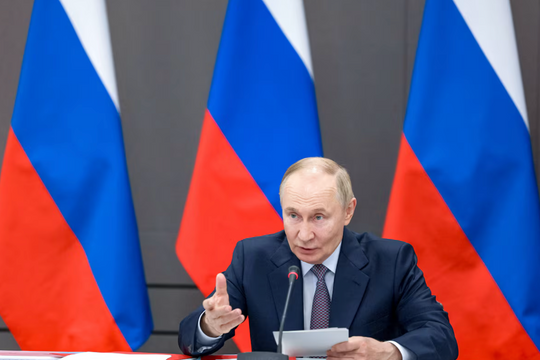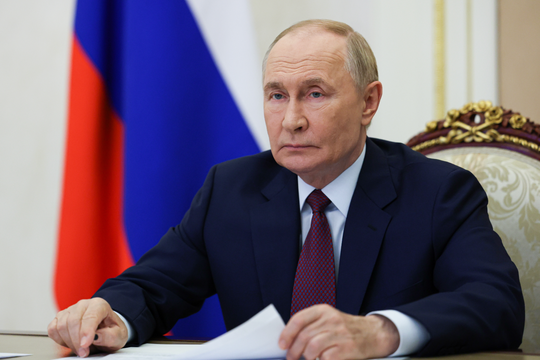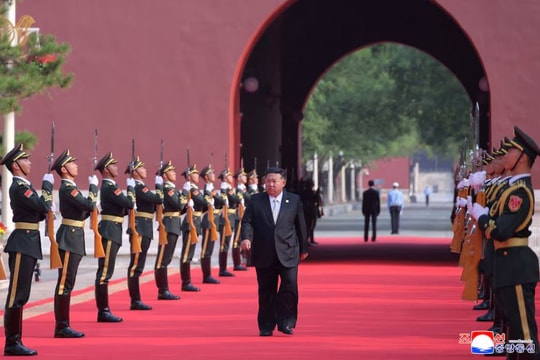US - South Korea stop military exercises, China benefits?
(Baonghean.vn) - North Korean leader Kim Jong-un flew to Singapore this week on a Chinese plane for a summit with US President Donald Trump. Mr. Kim left the event with a costly concession that Beijing has long sought: a halt to US-South Korea war games.
China wins big
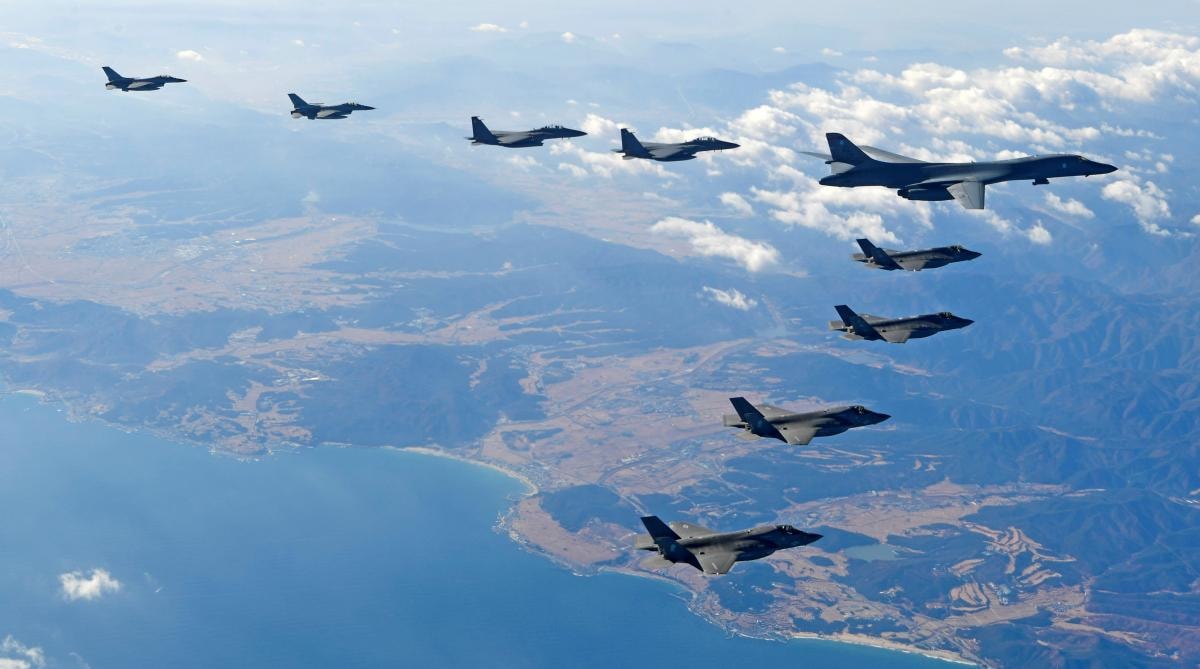 |
| US fighter squadrons during a joint exercise with South Korea. Photo: USAF |
Not only that, Trump also hinted at the possibility of withdrawing all US troops from the Korean Peninsula at some point in the near future. CNN quoted Bonnie Glaser, Director of the China Power Project at CSIS, as saying: "It's a resounding victory for China."
The possibility of reducing US military forces in the region has been a policy goal in China for many years, especially in the context of former US President Barack Obama's strategic pivot to Asia, which was seen by Beijing as a way to contain its rise.
The Chinese government has repeatedly been “annoyed” by the US alliance network that spans the Asian region, and especially East Asia, where US troops and military equipment are deployed in both Japan and South Korea. It is known that there are currently about 28,000 US troops in South Korea, and the number in Japan is 49,000.
It remains unclear exactly what “war games” Trump intends to end at a time when the US and South Korea hold numerous military exercises several times a year. However, analysts say even a limited end to the activity would be welcomed by Beijing.
The Chinese government will view the suspension of the exercises as a “prelude” to the eventual withdrawal of US military forces from the Korean Peninsula, or even better, as a precursor to a potential conflict in the alliance between Washington and Seoul, according to expert Bonnie Glaser.
“If they stop these exercises, then the South Korean people will start to question why the US military is still there?” Glaser said.
Priority stage?
| US President Donald Trump speaks at a press conference after the June 12 summit. Photo: ABC |
On June 12, when announcing the suspension of US-South Korea military exercises, President Trump said that withdrawing US troops was not yet part of the plan, but he "hopes it will eventually happen."
The US president’s statement was in stark contrast to assurances from his top military officials just over a week earlier. Speaking in Singapore earlier this month, US Defense Secretary James Mattis sought to reassure US allies in Asia that Washington was not going anywhere.
“Make no mistake: America is here to stay in the Indo-Pacific. This is our priority theater,” he said.
The Trump administration’s mixed messages seem to be music to China’s ears. “The Chinese certainly want to weaken US alliances, they want to set up a process that will lead to a US withdrawal from the region… I think the Chinese see a big opportunity here,” Glaser said.
US-China tensions have been rising in recent months over Beijing’s illegal reclamation activities on artificial islands in the South China Sea. After Trump’s announcement on June 12, Beijing appears to have reason to be cautiously optimistic about US power in the region.
But even if the withdrawal of US forces from South Korea happens, it is still possible that the US military will simply move some of these troops to challenge the Chinese government on another front, according to Timothy Heath, a senior international defense analyst at Rand, in the run-up to the recent US-North Korea summit.
“Washington will be able to redeploy any idle troops and equipment to other bases in Asia, most likely Japan, and rotate through the Philippines, Australia, and elsewhere,” he said.
Easing the punishment?
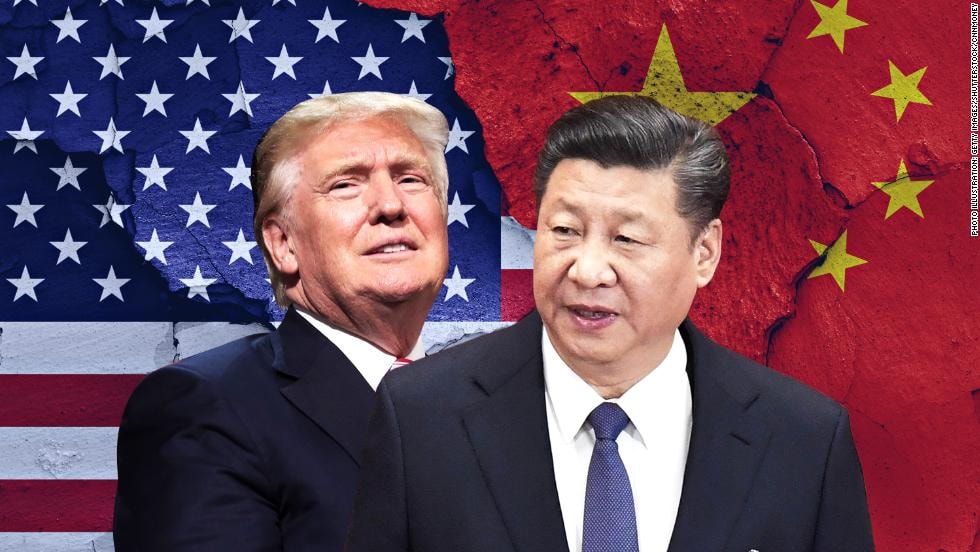 |
| President Trump and Chinese President Xi Jinping. Photo: Getty |
The outcome of the Trump-Kim summit does not only open up military opportunities for China. With the US president happy and North Korea showing some restraint, Beijing can also push for sanctions relief at the UN Security Council.
Responding to CNN's question about easing sanctions on June 13, Geng Shuang, a spokesman for the Chinese Foreign Ministry, said: "Sanctions can be adjusted appropriately, including suspending or removing relevant measures. China has always maintained that sanctions are not the purpose."
Analysts largely agree that China has been reluctant to intervene in the latest round of sanctions against Mr. Kim’s regime, feeling compelled to do so by North Korea’s increasingly provocative missile and nuclear tests combined with U.S.-led international pressure.
But China has no interest in seeing North Korea collapse, seeing it as a strategic buffer between itself and US forces on the Korean Peninsula. A collapse of Pyongyang would only trigger a refugee crisis on China’s border.
Therefore, Beijing will likely use any excuse to argue for sanctions relief.
There has been growing speculation recently that China is allowing increased cross-border trade with North Korea, largely based on media reports citing anecdotal evidence.
At a press conference on June 12, President Trump thanked Chinese President Xi Jinping for closing that border area, although he added that it happened “probably less than in the last few months.”
CNN spoke to people in the city of Dandong, a major trading hub between North Korea and China, and they said little has changed at the border. Cross-border trade remains low, but residents and traders are hopeful that the recent summit will get business up and running again.

